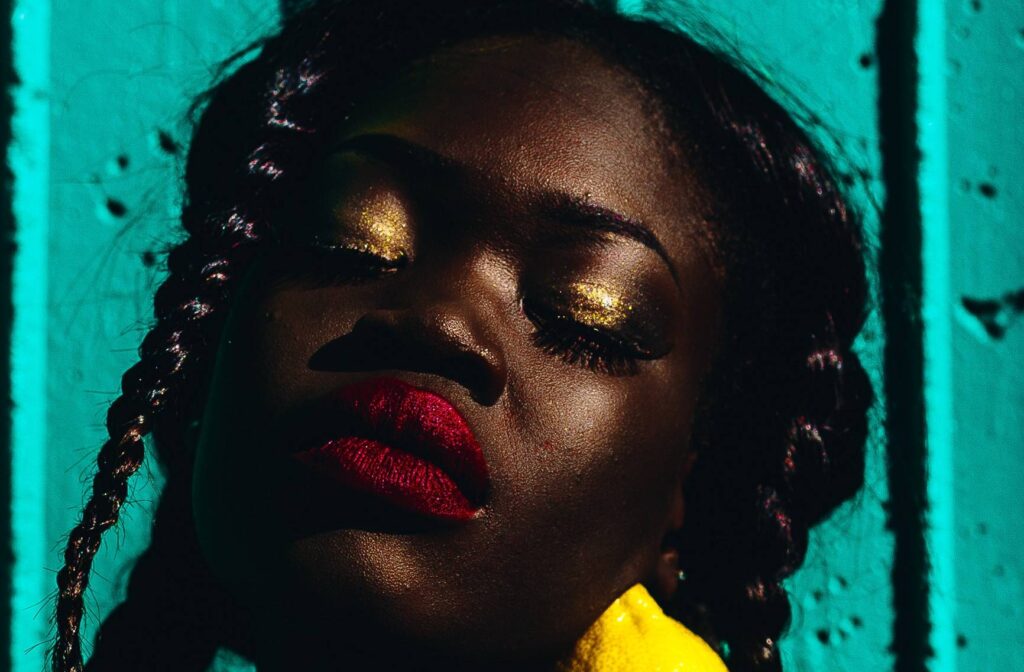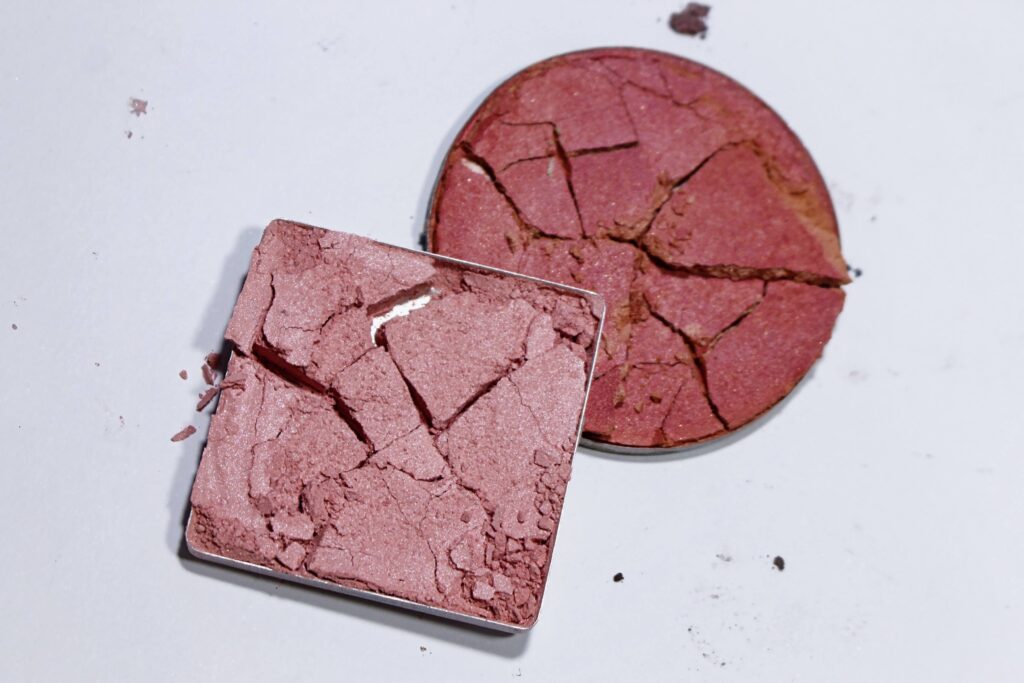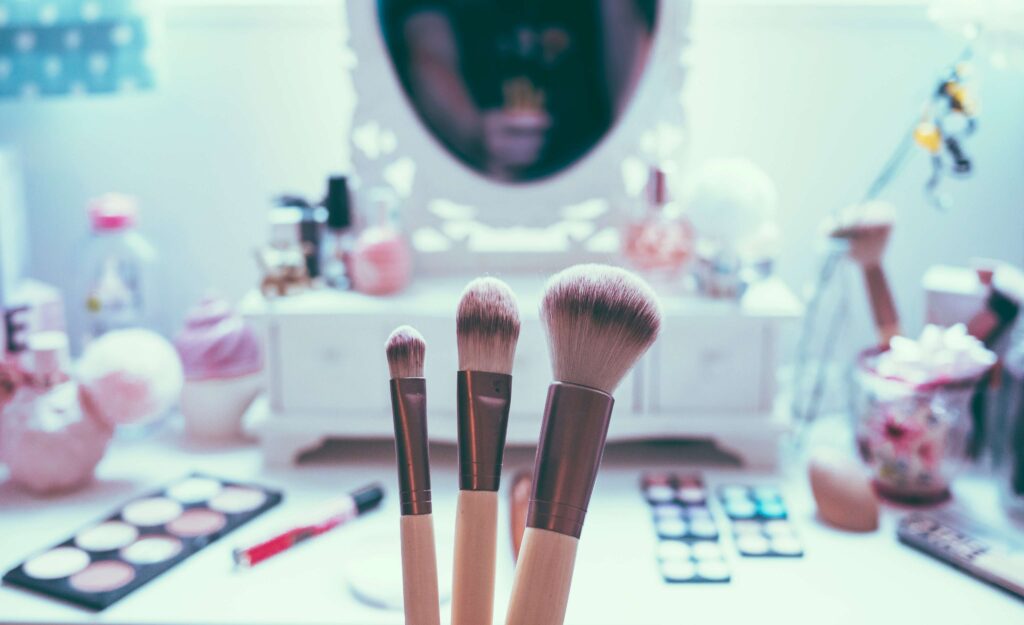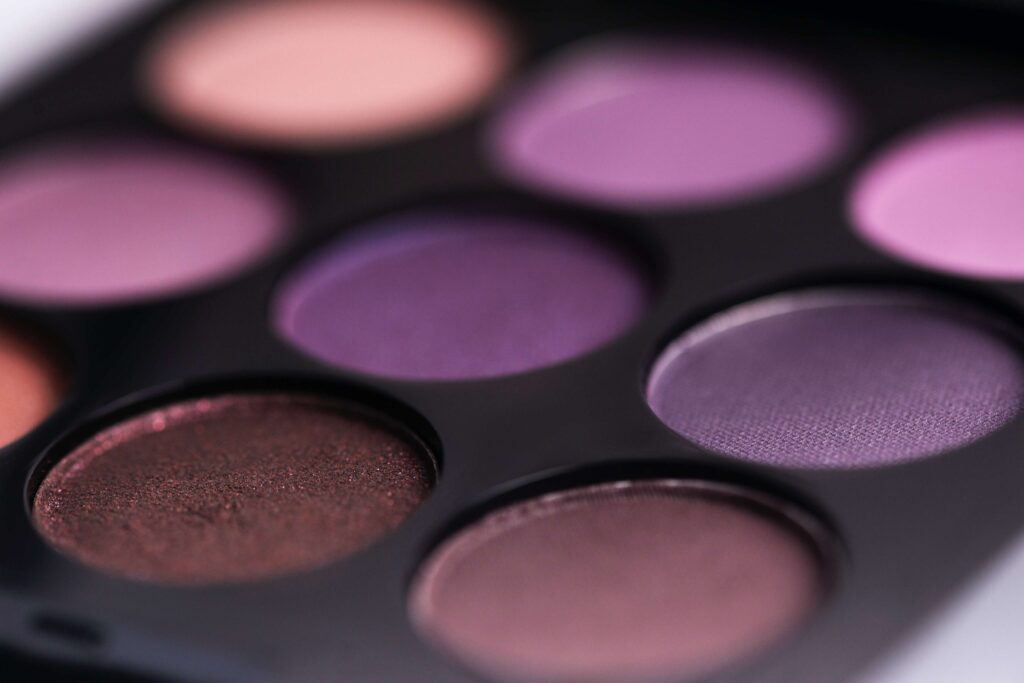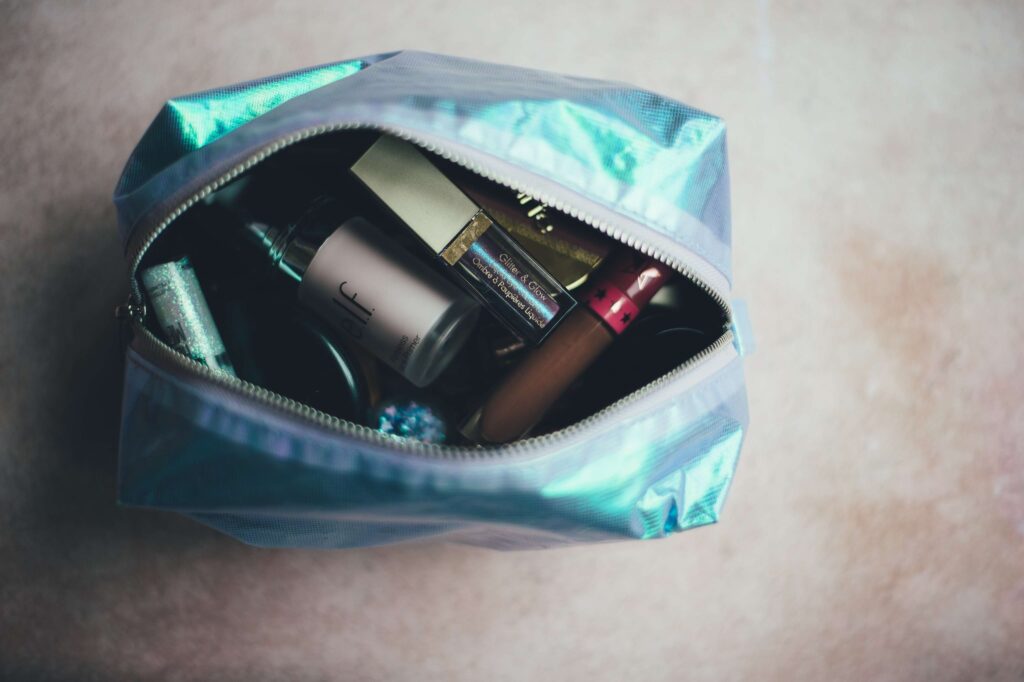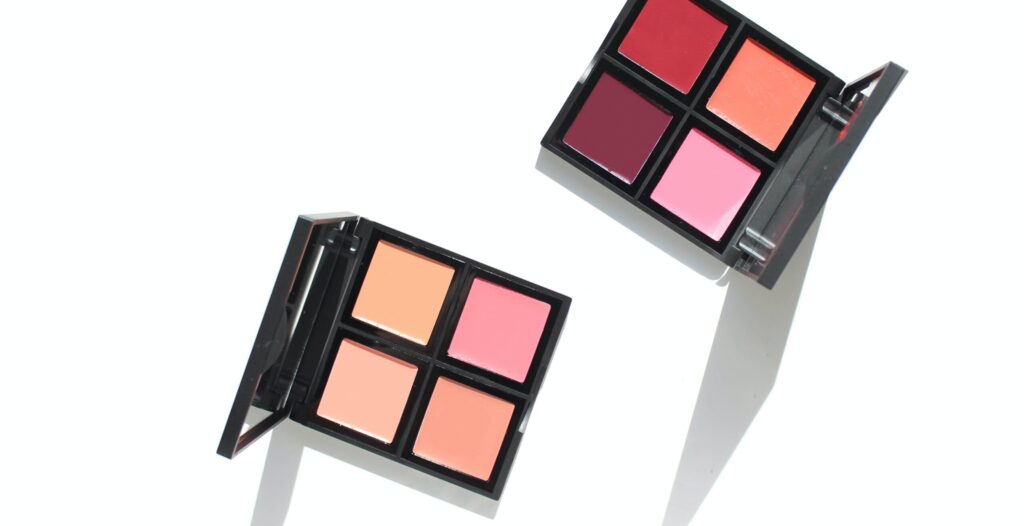We all have that one ‘go-to’ makeup palette or that perfect shade of lipstick that we simply can’t bear to part with. But did you know that makeup products have expiration dates too? Just like food, cosmetics have a shelf life, and using expired products can lead to skin irritation and even infections. In this article, we’ll discuss When to Throw Out Old Makeup Products and how to even determine if they have passed their prime.
We will discuss:
- Risks associated with using expired makeup
- Signs of expired makeup
- Makeup products and their average lifespan
- Makeup products that have a longer shelf life
- Storage tips to prolong makeup shelf life
- Frequently asked questions on makeup expiry date
Risks Associated With Using Expired Makeup
Using makeup beyond its expiration date can pose risks to your health and the condition of your skin. Here are some straightforward reasons why using expired makeup is not a good idea:
1. Expired makeup can cause skin irritation
Expired makeup can cause redness, itching, or irritation on your skin. The ingredients may break down over time, leading to a reaction when applied.
2. Expired makeup is a breeding ground for bacterial growth
As makeup gets older, it becomes a breeding ground for bacteria. This can happen even if the product looks fine. Applying makeup with bacteria can lead to infections and other skin issues.
3. Expired cosmetic products don’t work effectively
Expired makeup may not work as intended. The colours may change, and the product might not provide the coverage or finish you expect. This can result in a less-than-desirable makeup look.
4. Outdated beauty products can cause allergic reactions
The chemicals in makeup can become less stable over time, increasing the risk of allergic reactions. This is especially true for people with sensitive skin or allergies.
5. Expired makeup can cause eye infections
Using expired eye makeup, such as mascara or eyeliners, can be particularly risky. It can lead to eye infections or irritations, as the eyes are more sensitive to contaminants.
Signs of Expired Makeup
Knowing if your makeup products have expired is important for maintaining healthy skin. While most cosmetics come with printed expiration dates, these dates can be challenging to find or see boldly. Luckily, there are other signs you can look out for to determine if it’s time to throw out your makeup.
1. Changes in Color, Texture, or Smell
Look closely at your makeup. If the colour has changed or it doesn’t smell the same, it’s a sign it’s no longer good. Also, check the texture too. If it’s become lumpy, sticky, or dry, it’s time to let it go.
2. Separation or Clumping
If your makeup product is separating into layers or has weird clumps, it’s a signal that it’s past its prime. Mix it well; if it doesn’t blend back to normal, it’s best to toss it away.
3. Irritation or Allergic Reactions
Pay attention to how your skin reacts. If your makeup starts causing redness, itching, or irritation, it’s a clear sign it’s time to replace it. Your skin’s health is more important than holding onto old makeup.
4. Batch Codes
Some products have batch codes. If you can’t find an expiry date, use the batch code to check with the manufacturer about its shelf life.
Makeup Products and Their Average Lifespan
Different makeup products have varying lifespans. Here’s a breakdown of the observed lifespan of common makeup products:
1. Foundation expiry date
Liquid foundations generally last for about one year, while powder foundations can last up to two years. However, if you notice any changes in texture, smell, or color, it’s best to replace them.
2. Concealer expiry date
Similar to foundation, liquid concealers have a shelf life of around one year. However, cream concealers can last up to two years if stored properly and not exposed to excessive heat or moisture.
3. Powder-based products (blush, eyeshadow, etc) expiry date
These products typically have a longer lifespan. Powder blushes, bronzers, and eyeshadows can last for about two years. However, if they become dry, chalky, or develop an unusual odour, it’s time to say goodbye.
4. Mascara expiry date
Mascara has the shortest lifespan among makeup products due to its liquid nature and exposure to air. To prevent eye infections, it’s essential to replace your mascara every three to six months, even if it seems like there’s still product left.
5. Eyeliners and lip liners expiry date
Pencil eyeliners and lip liners can last for up to two years if sharpened regularly to remove any bacterial buildup. However, if the product becomes dry or crumbly, it’s time for a replacement.
6. Lipstick and lip gloss expiry date
Lipsticks can last for about two years, while lip glosses have a shorter lifespan of around one year. Keep an eye out for changes in texture, smell, or taste, as these are indications of expiration.
Makeup Products That Have a Longer Shelf Life
While many makeup products have relatively short lifespans, some have a longer shelf life, making them more cost-effective and sustainable options. Here are a few examples:
1. Powder-based products lifespan
As mentioned earlier, powder blushes, bronzers, and eyeshadows typically last longer than their liquid counterparts. Opting for powder formulations can help extend the lifespan of these products.
2. Lipstick lifespan
Lipsticks tend to have a longer shelf life compared to other liquid or cream-based lip products. If stored properly and not exposed to excessive heat or moisture, lipsticks can last for up to two years.
3. Nail polish lifespan
Nail polishes can last for several years if stored in a cool, dark place. However, if the polish becomes thick or separated, it’s time to replace it.
4. Makeup brushes lifespan
Unlike makeup products, brushes can last for several years if properly cared for and cleaned regularly. Investing in high-quality brushes and maintaining their cleanliness can save you money in the long run.
Storage Tips to Prolong Makeup Shelf Life
Proper storage is essential for prolonging the lifespan of your makeup products. Here are some tips to help you keep your cosmetics fresh and safe to use:
1. Store in a cool, dry place
Heat and humidity can accelerate the deterioration of makeup products. To prevent premature expiration, store your cosmetics in a cool and dry area, away from direct sunlight.
2. Keep lids and caps tightly closed
Exposure to air can cause products to dry out or become contaminated with bacteria. Always ensure that lids and caps are tightly closed after each use to maintain the integrity of the product.
3. Avoid sharing makeup
Sharing makeup products, especially those that come into direct contact with the skin, can spread bacteria and increase the risk of infections. It’s best to avoid sharing your cosmetics with others.
4. Clean your makeup brushes regularly
Dirty brushes can harbour bacteria and transfer it to your makeup products, leading to contamination. Clean your brushes at least once a month using mild soap or brush cleansers to maintain their cleanliness.
5. Don’t add water or other substances to dilute makeup products
Adding water, oils, or other substances to extend the life of your makeup products can introduce bacteria and compromise their safety. It’s best to discard products that have dried out or become unusable.
Frequently Asked Questions on Makeup Expiry Date
1. How long does it take for makeup to go bad?
The lifespan of makeup varies based on the type of product. Generally, liquids and creams have a shorter shelf life, usually around 6-12 months, while powders can last up to two years. Pay attention to changes in color, texture, or smell to determine if your makeup has gone bad.
2. Does makeup expire if never opened?
Yes, makeup can still expire even if it’s never opened. Always check for expiration dates or signs of spoilage, regardless of whether the product has been opened or not.
3. How do I check my makeup expiry date?
Look for a printed expiration date on the packaging. If there’s no date, some products have batch codes that you can use to inquire about the shelf life from the manufacturer.
4. Is it OK to use expired makeup? What happens if I use expired makeup?
It’s not recommended to use expired makeup. Aside from ineffective ingredients, expired products can harbor bacteria, causing skin irritation, breakouts, or allergic reactions.
Conclusion
Knowing when to throw out old makeup products is essential for maintaining healthy skin and avoiding potential risks. Expired makeup can harbor bacteria, cause skin irritations, and lose its effectiveness. Remember, when in doubt, it’s always better to be safe and replace your products rather than risking your skin’s health.
At Classic Makeup USA, we offer the best makeup in Lagos, Nigeria. Explore our high-quality and long lasting makeup products on our website to discover colours and formulations that resonate with your unique style. Your skin will thank you for it.
